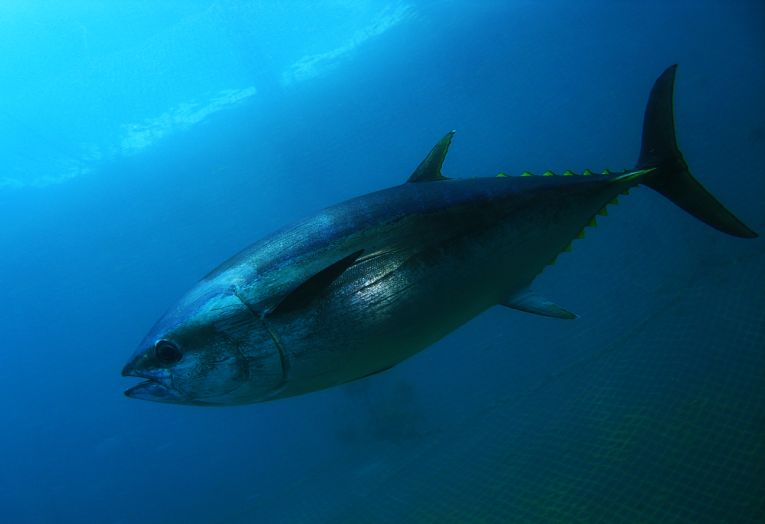The Western and Central Pacific Fisheries Commission (WCPFC) have failed to regulate tuna fishing adequately with a petty 10-30% reduction for the year.. Instaed of fighting for the recognition of fisheries policies that are sustainable and promote conservation, the Pacific has failed in its responsibilities. Only silky sharks seem to have achieved some respite.
In Cairns this week though, the tuna have lost out and may now be endangered beyond redemption. While the group achieved further total bans on taking silky shark in the whole area covered by the Commission, and a vessel size restriction, 2 tuna species (that’s bluefin and bigeye) look likely to be overfished even more. Amanda Nickson is PEW’s tuna conservation director. She argues that “despite more than a decade of scientific advice on the need to reduce fishing of bigeye, the Commission failed to put adequate science based conservation measures in place.”
We saw the evolution of regional management such as WCPFC specifically to manage tuna populations. With bigger countries (largely, Japan, the United States, the European Union, China, Chinese Taipei, and South Korea) falling well short of their responsibility to maintain healthy Pacific populations, the smaller nations (mainly the island states) will suffer more from the tuna’s lack of protection. Solomon Islands delegate, Edward Honiwala, said that in his opinion, the meeting, which relies on consensus from those larger nations, “failed in our responsibilities to adequately address the problems of overfishing.”
The illegal nature of much Pacific fishing was highlighted by the new regulation to have IMO numbers on every large vessel. Amanda was emphatic on the subject. “Illegal, unregulated, and unreported fishing has been a growing problem in the Pacific. This important step brings fisheries into line with the reporting and safety requirements that all large passenger and merchant vessels have been required to meet since 1996. It follows similar decisions taken in the past two months for industrial-scale fishing vessels operating in the Southern Ocean and the Atlantic Ocean.” However, illegal fish cold possibly enter some ports, according to PEW. New port state regulations were omitted from the new measures recommended.
The disappointment is compounded by the previous week’s good news from the Atlantic. The International Commission for the Conservation of Atlantic Tunas (ICCAT) rejected pressure to increase quotas for bluefin tuna in the East Atlantic and Mediterranean. They retain the previous quotas of 13,400 tonnes in the eastern Atlantic, with the western Atlantic retaining its much more restricted catch, so that overfished stocks can recover some vestige of their role in the marine ecosystem.
In contrast, 2.65 million tonnes of the magnificent tuna shoals were removed from the Pacific last year, comprising 60% of the world catch. Enjoy your sashimi!










